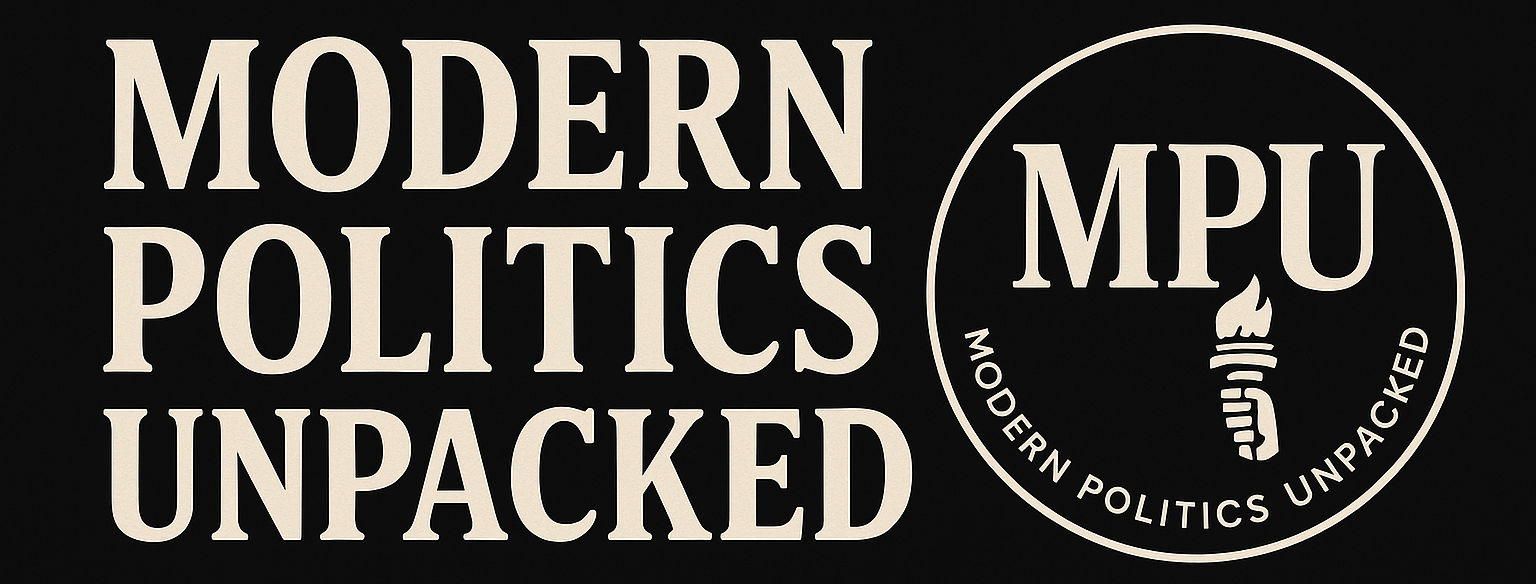Congress vs. AI: Can Lawmakers Catch Up with the Machines?

Artificial Intelligence is no longer a futuristic buzzword — it’s here, it’s everywhere, and it's moving faster than the legal frameworks meant to control it. From generative AI like ChatGPT to facial recognition software, autonomous weapons, and algorithmic hiring systems, the U.S. Congress is finally trying to play catch-up. The year 2025 is shaping up to be a pivotal moment, with a wave of bipartisan bills seeking to regulate AI’s influence in critical domains: elections, surveillance, labor, education, and more.
The problem? While lawmakers are showing an unusual willingness to cooperate across the aisle, the pace of innovation — and lobbying — is lightning fast. The consequences of delay could reshape American democracy, economics, and civil liberties.
Let’s break down the current landscape, the key players in Congress, and the core legislation aiming to define how AI will shape — or destabilize — the U.S. social contract.
A Storm of Bills: What’s on the Table?
Several major bills are now in committee or headed for the floor. Here's a snapshot of the most significant ones:
1. The AI Transparency in Elections Act (ATEA)
- Sponsor(s): Sen. Amy Klobuchar (D-MN) and Sen. Josh Hawley (R-MO)
- Focus: Requires disclosure when political ads use AI-generated images, audio, or video
- Why it matters: Deepfakes have already muddied election waters globally. With the 2026 midterms on the horizon, bipartisan fear of AI misinformation is real.
2. The American Data Autonomy and Innovation Act (ADAIA)
- Sponsor(s): Rep. Ted Lieu (D-CA), Sen. Todd Young (R-IN)
- Focus: Establishes limits on facial recognition tech used by federal agencies, introduces citizen opt-out provisions
- Why it matters: This is the first serious attempt to federally regulate biometric surveillance systems.
3. The Algorithmic Accountability and Fairness Act
- Sponsor(s): A coalition led by Sen. Ron Wyden (D-OR) and Sen. Bill Cassidy (R-LA)
- Focus: Mandates regular audits for AI systems used in hiring, credit scoring, and housing
- Why it matters: Discrimination by algorithm is becoming a major civil rights issue — one with bipartisan interest due to its economic and legal implications.
4. The National AI Standards and Research Act
- Sponsor(s): Senate AI Caucus, co-chaired by Sen. Martin Heinrich (D-NM) and Sen. Mike Rounds (R-SD)
- Focus: Allocates federal funding for AI safety research and standard-setting agencies
- Why it matters: Lawmakers acknowledge they don’t have the technical knowledge to regulate AI alone — this bill would empower NIST and other bodies to fill that gap.
Bipartisan Momentum — and Tension
What’s unusual — and promising — about this moment is the cross-party urgency. Lawmakers across the ideological spectrum now agree: AI is powerful, disruptive, and dangerous if left unchecked. But their motivations vary:
- Democrats tend to emphasize civil rights, labor protections, and data privacy.
- Republicans often focus on election integrity, national security, and limiting tech monopolies.
- Libertarians and nonpartisan civil liberties groups warn about government overreach and mass surveillance.
This convergence has produced rare bipartisan coalitions. But it also risks legislative gridlock if philosophical divides over the size and role of government reemerge.
Rep. Anna Eshoo (D-CA) noted in a recent hearing: “We can’t afford to let our partisan divisions slow down action on something that’s rewriting every sector of our economy in real time.”
What’s at Stake?
The stakes are not abstract. If Congress fails to legislate AI effectively — or does so too late — the consequences could ripple through:
1. Democracy
- AI-generated misinformation and deepfakes threaten the integrity of elections.
- Without disclosure laws, voters may be manipulated by synthetic content they can’t recognize as fake.
2. Privacy and Surveillance
- Facial recognition and predictive policing technologies are already in use across the country, often without public knowledge or consent.
- The absence of oversight risks entrenching a surveillance state reminiscent of dystopian fiction — but real.
3. Labor and Employment
- Algorithmic hiring tools can automate bias.
- AI-driven layoffs in sectors like journalism, customer service, and logistics are increasing.
- Without labor safeguards, AI could accelerate wage depression and job instability.
4. Economic Competition
- The U.S. risks falling behind China and the EU in both AI development and regulation.
- Without clear rules, innovation may be stifled by uncertainty — or overrun by unethical practices.
Lobbyists vs. Lawmakers: The Shadow Fight
While Congress debates, the tech industry is already playing hardball. OpenAI, Meta, Google, Amazon, and Microsoft have dramatically ramped up their lobbying spend in Washington.
- According to OpenSecrets.org, AI lobbying tripled from 2022 to 2024.
- Many bills are being watered down in committee due to behind-the-scenes corporate pressure.
- Former congressional staffers are now working in key government relations roles for major AI firms, blurring the lines between regulation and influence.
Sen. Elizabeth Warren (D-MA) has repeatedly warned that without strong firewalls, “we risk having the same companies that built unaccountable algorithms write the rules to govern them.”
Can Congress Keep Up?
Here lies the core challenge: technological change is exponential, but legislation is linear — slow, deliberative, and often gridlocked.
Obstacles include:
- Limited technical expertise in Congress (few members have STEM backgrounds).
- Low public understanding, which reduces political pressure.
- Fragmented jurisdiction, with AI touching labor, defense, commerce, and civil rights — often managed by different committees.
Some advocates argue for creating a dedicated federal AI agency, modeled after the FDA or FCC, to coordinate policy across sectors. Others push for executive action, citing the Biden administration’s 2023 Executive Order on AI as a template for urgent regulation without congressional bottlenecks.
Global Context: The U.S. Lags Behind
The U.S. is not operating in a vacuum. The European Union passed the AI Act in 2024, the world’s first comprehensive legal framework for artificial intelligence. China, meanwhile, is rapidly expanding its AI capabilities with state oversight and massive investments.
If the U.S. fails to act, it risks:
- Importing unsafe technology with no domestic standards.
- Falling behind in setting international norms, ceding leadership to Europe or authoritarian regimes.
- Allowing tech firms to self-regulate, a strategy that’s already failed in areas like social media content moderation.
The Future: Three Scenarios
To understand where the U.S. might go from here, consider these plausible futures:
Scenario 1: The Governance Breakthrough
Congress passes a package of AI laws by mid-2026, balancing innovation and rights. A bipartisan AI commission is created to adapt legislation in real time, modeled after the 9/11 Commission or FEC.
- Upside: America becomes a global leader in ethical AI.
- Risk: Corporate lobbying still dilutes enforcement unless watchdogs are empowered.
Scenario 2: Patchwork Paralysis
A few bills pass, but most regulation is left to the states. California, New York, and Illinois introduce strong rules, while other states lag.
- Upside: At least some Americans gain protection.
- Risk: Legal fragmentation creates compliance chaos and widens inequality.
Scenario 3: The Tech Wild West
Legislation stalls. Big Tech self-regulates. AI continues to shape elections, employment, policing, and public discourse with minimal oversight.
- Upside: Rapid innovation — but at what cost?
- Risk: Democratic norms erode, inequality deepens, and scandals trigger a too-late regulatory backlash.
Conclusion: A Moment That Matters
The window to regulate AI before it becomes too entrenched — and too powerful — is closing. For now, bipartisan momentum is real. But without sustained political courage, technical insight, and public engagement, Congress may once again find itself legislating yesterday’s problems while tomorrow’s machines race ahead.
The future of democracy, civil liberties, and economic fairness is not just in the hands of engineers — but in the hands of lawmakers. The question is whether they can move fast enough.
